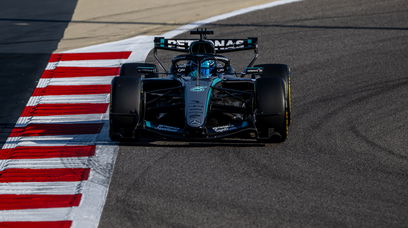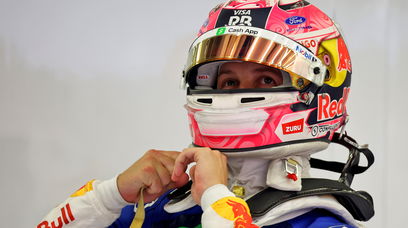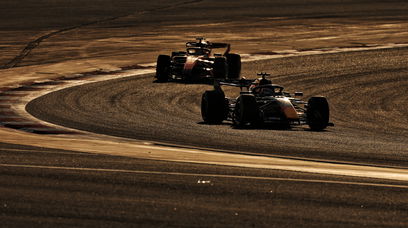The F1 circus racked up the air miles in 2021, with the 22-race calendar being the busiest season so far. Included in the jam-packed schedule were three triple-headers, meaning that personnel found themselves with little time to adjust between each Grand Prix. November's final triple-header - spanning Mexico, Brazil and Qatar over the course of three weeks - seemed to particularly cause some problems with jet lag. Several drivers have discussed how this can take its toll. Pierre Gasly says he was "struggling" with lack of sleep by the final weekend of this run of events. When asked how he was handling the jet lag, Gasly told media including RacingNews365.com : "Not great. I've been, let's say, struggling quite a bit with the sleep and recovering properly, but that's fine. "We'll get it out of the way and we'll do it the best way we can." Lance Stroll agrees that the effect was "brutal" and, in his case at least, this wasn't helped by alarm problems. "I was having a really nice sleep on Monday night after Brazil, because I hadn't slept in a few days in Brazil," Stroll explained. "I was having such a nice night, and [at] one o'clock in the morning I had this freaking alarm problem. [It] kept going till five o'clock, so it's just not meant to be these days."
4am problems
Charles Leclerc admits that waking up at 4am became an issue for him during the triple-header. "I normally sleep very well, but here it's strange," Leclerc said. "I don't struggle to fall asleep, so at 10.30pm [or] 11pm, I am already sleeping. But then at four in the morning, I wake up, and I'm just awake. And so now I'm tired." Leclerc feels that the tiredness eases "as soon as the adrenaline kicks in" during the race weekend, but thinks that November's triple-header was one of the occasions where he had been most affected by jet lag in his career. When questioned what he did when waking up in the early hours, the Ferrari driver ruled out a dawn trip to the gym. "Oh, no, I just try to fall asleep again," Leclerc admitted. "But I just can't. "[You're] closing the eyes and you're like, 'Okay, I'm going to check a bit the phone, 15 minutes'. That's the worst mistake. "And then you try to sleep again and you just can't make it [happen], so I just wait for the time to go to the track then."
"Stress" on the body
For 2021 F1 rookie Nikita Mazepin, the effects of a schedule like this have been new to him. Whilst he has enjoyed visiting different countries, the Russian admits that he has felt the physical impact of travelling. "It's my first real experience of travelling between continents," Mazepin explained. "And actually, I've said it before, but I've never been to the continents like Mexico and Brazil and [the] US before. "So it's been great being there, but obviously just having four days to fly over, and I've taken off at 11 o'clock and then landed here at eight o'clock in the evening, and it was dark when I took off and it was dark when I arrived. "So, internally, my body is a bit stressed. But yeah, [I've experienced] very similar things to everyone. You wake up very early, and then try and survive until the morning and hope the evening comes quicker."
The exception
Not all drivers struggle with jet lag, though. Kimi Raikkonen - who retired from Formula 1 at the end of the 2021 season - does not seem to have any troubles with sleep. He does, though, sympathise with other members of the team who may be impacted by the schedule, particularly in light of the fact that the 2022 calendar is due to feature a record-breaking 23 races . "When I started [in F1 in 2001], I think we had 14 races. 14 or 15, something like that, the first year," Raikkonen said. "So it was different, but then there was testing between the races, so I don't know which [is better]. I think more races is actually better than going [to a] race and then testing for a couple days, two or three days, and then going to the next race. "So I don't think it was any easier that way, even though there was less racing. I've been home in-between all of the races [in 2021]. "I've never really had big issues with jet lag. [But] obviously with mechanics, with a lot of people that are doing long days, it's hard for them. The problem [is] people burn out. "I think, maybe as a spectator, there's a lot of people [who] it's nice for, having a lot of races. But [for] the people that actually do the most of the work, it's very difficult for them. There has to be some kind of better way of dealing with that. "[For] some teams it's not just the option to hire more people, because they don't have money to hire, so it's a bit tricky."
Most read








